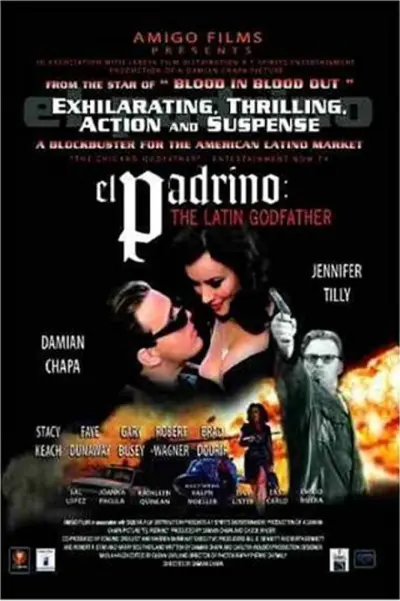
"El Padrino: The Latin Godfather," released in 2004, offers a profound and unvarnished depiction of organized crime in the Latino community of East Los Angeles. Directed by Damian Chapa, this film skillfully interweaves action, crime, and drama, presenting a narrative rich in themes of family, power, and moral complexity.
The story centers on Kilo Vasquez, a young man growing up under the shadow of his father, Manny, a notorious drug dealer. Despite his mother's protective efforts, Kilo is inexorably drawn to his father's world, mesmerized by the allure of his father's power and luxurious lifestyle. This admiration propels Kilo to emulate his father, gradually immersing himself in the drug trade. As Kilo matures, he transitions into a full-time drug dealer, a path that takes a significant turn upon meeting Sabeva, the daughter of a Colombian drug lord. This relationship elevates Kilo to the upper echelons of drug trafficking.
The film is candid in its portrayal of the brutal realities and inherent dangers of the drug trade. Kilo's life is marked by risk and peril, leading to his eventual imprisonment. Remarkably, he continues to orchestrate his operations from behind bars, reflecting the persistent and ruthless nature of the criminal world. The plot intensifies when Kilo faces a moral quandary: a proposal to assassinate a convicted child-killer in exchange for a reduced sentence. This situation foregrounds significant themes of justice, vengeance, and ethical ambiguity, prompting both Kilo and the audience to ponder the intricacies of morality within a life engulfed in crime.
"El Padrino: The Latin Godfather" transcends the typical boundaries of a crime drama. It delves into the struggles of a man navigating the perilous landscape of the underworld, exploring themes of choice, consequence, familial bonds, and the intoxicating draw of power. The film portrays the drug business not merely as a commercial endeavor but as a lifestyle with its distinct norms, moral s, and inevitable challenges. It also underscores the overlap between personal and professional realms in criminal activities, leading to complex relationships and dynamics.
In summary, "El Padrino: The Latin Godfather" emerges as a poignant and thought-provoking exploration of human experiences within the sphere of criminality. It is a tale of ambition, authority, and the search for identity in a realm where moral lines are frequently blurred. The film's unique perspective on the Latino crime scene renders it a significant and impactful addition to the crime drama genre.

